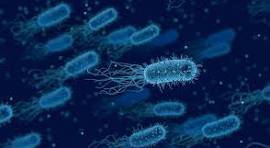
Oil-Eating Bacteria helps cleanup pollution Publish Date : 08/08/2025
Oil-Eating Bacteria helps cleanup pollution
Professor R. S. Sengar and Dr. Reshu Chaudhary
“Oil-Eating Bacteria in Hyderabad site set to revolutionise pollution cleanup”
Researchers have isolated a potent strain of bacteris from a petroleum-contaminated site in Nacharam area, capable of effi-ciently degrading harmful petroleum hydrocarbons.
Their findings, published in 'Nature Scientific Reports on May 17, spotlight Rhodococcusindonesiensis strain SARSHII as the most promising candidate among five identified strains with oil-degrading and biosurfactant-producing potential.
The study, titled 'Isolation and Characterisation of Novel Hydrocarbon-Degrading Bacteria from Oil Polluted. So in near Nacharam, Hyderabad, India, was conducted by Anuraj Nayarisseri of In Sili co Research Laboratory, Eminent Biosciences, Indore, and RajabrataBhuyan from the department of bioscience and biotechnology, Banasthali Vidyapith, Rajasthan, along with their team.

It involved extensive sampling across a heavily polluted industrial zone in Nacharam, where soil contamination is linked to ne arby petroleum stations and associated activities. Using soil probes at depths ranging from 10 cm tol metre, the team collected 72 samples. From these, five bacterial strains were found to possess both hydrocarbon degrading capabilities and the ability to produce biosurfactants natural compounds that aid in breakingdown oil. The strains were identified through rRNAgene sequencing and confirmed using biochemical assays.
Among the five, Rhodococcusindonesiensis SARSHIL stood out, demonstrating hydrocarbon degradation efficiency of up to 90%, along with substantial biosurfactant production. Importantly, phyto-toxicity tests confirmed the strain to be safe for environmental use, marking it as a potential gamechanger in the field of bioremediation.

The strain also showed remarkable adaptability to polluted environments, underscoring its readiness for practical deployment. According to the researchers, SARSHII holds promise for large-scale industrial application.
This gains urgency in context of petroleum hydrocarbon pollution, a growing concern caused by oil spills and industrial discharge.

Writer: Professor R. S. Sengar, Director Training and Placement, Sardar Vallabhbhai Patel University of Agriculture and Technology, Modipuram, Meerut.


